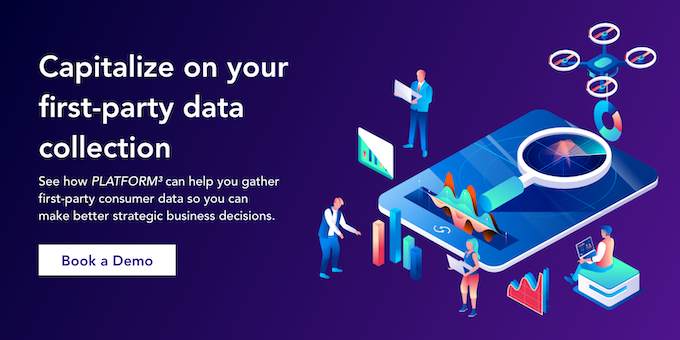3 Reasons Why Marketing Promotions and Campaigns Fail
Promotions and campaigns are to marketing as the brush is to the painter. And like painting, running a successful promotion or campaign requires not only creativity, but dedication, patience, and discipline. Before you create your next marketing campaign or promotion, read on for a better understanding of why they fail.
1. You made promises you couldn't deliver
In 2008, the world had been waiting 14 years for Guns N’ Roses’ album, Chinese Democracy. Dr. Pepper joined the rest of the world in agonizing over when next we would all be blessed by Axl Rose’s vocals by promising to give a free can of Dr. Pepper to every American if the album was released that year, and sadly, it was. Following the release, Dr. Pepper made a coupon available on its website – which crashed under the cumbersome weight of clicks from every American – to give out the free soda. Suffice to say, the thirst of many Americans has still not been satisfied.
The Lesson: Don’t promise what you can’t deliver. If you tell your consumers that one of them will receive Jupiter for purchasing two of your products in one transaction, someone will surely come to you, receipt in hand, waiting to receive a planet.
When creating a promotion, ensure that you can actually dole out the rewards and millions of swag you’re promising. FOMO (the fear of missing out) is a very powerful human emotion to tap into because everyone wants to be an early adopter but don’t misuse it. You don’t want to be known for promotions that don’t deliver on their promise.
2. You ignored the significance of timing
Nesquik created a mobile app in 2013 and declared September 16th “National Bunny Ears Day.” The app allowed users to add bunny ears to images. Users could also share these images with anyone using an iPhone or iPod touch device running iOS 5 or 6, and on Twitter or Instagram with the hashtag #NationalBunnyEarsDay. A seemingly perfect plan seeing as Snapchat and Instagram filters are all the rage right now; if your photo doesn’t have a filter, is it even post-worthy?
Nesquik forgot about one important ingredient: timing. September is the month of drinking pumpkin-spice lattes, buying Halloween decorations, and mourning the loss of Summer. An app that “bunnifies” your picture would probably have attracted more users during Easter considering that immediately April rolls around, all the marked down chocolate-filled candy hearts are replaced with Easter eggs, and it is as if Valentine’s Day never even existed.
The Lesson: Relevance is what makes timing so important when creating a marketing campaign. Make it a priority to be aware of what your consumers are interested in. Stay up-to-date on what influencers they are interacting with, what content they are sharing, and what products they are raving about. A tad bit creepy? You bet. More than a tad bit effective? Definitely.
Water parks don’t make a splash (see what we did there?!) in February, Back-to-school promotions don’t start in April, and Hallmark doesn’t start airing its Christmas movies in August. This is because people are already focused on other things during those months. For all we know, the Nesquik app garnered mediocre attention because everyone was too busy waiting in a queue for a venti no-foam Pumpkin-spiced latte with soy milk, one shot of ristretto, two shots of espresso, and three pumps of unicorn tears.
3. You created the wrong message for your audience
Pepsi’s ad with Kendall Jenner has to be one of the biggest marketing campaign fails because it tried to touch on an important subject and didn’t succeed. The ad which featured Kendall Jenner supposedly solving police brutality and racial tensions by offering a can of Pepsi to a police officer, was met with overwhelming backlash less than 24 hours after it hit the interwebs. And led to an endless stream of memes chastising Pepsi for trivializing social justice movements.
Update: Pepsi Global deleted this commercial on their own channel. They already apologized about the content of this video.
The Lesson: Understanding the audience you’re targeting and why is a major key in marketing. Your promotions and campaigns must be built upon the needs, interests, and wants of your consumers. When creating a promotion or campaign, you must ensure that the message behind it is one that speaks to your consumers’ values and pain points. If you don’t know who your consumers are, you will keep making this mistake. It is also important to remember that you will always need market research to keep up with the dynamic needs of your consumers.
Drive awareness, engagement, and ROI with targeted marketing campaigns
User first-party data and consumer insights play a huge role in creating effective targeted messaging and marketing campaigns. In order to understand their consumers’ needs, interests, and purchase behaviors, brands need to capture and leverage user data, helping them to avoid similar missteps and mistakes.
With 3 tier logic’s PLATFORM³, brands can design and execute data-driven marketing campaigns like loyalty programs, sweepstakes and contests, and gift with purchase promotions. Modules like Purchase Receipt Validation and Data Capture & Analytics provide marketers with the tools they need to guide their business decisions and navigate the potential perils of the marketing landscape. To learn more, book a demo with our team today.




